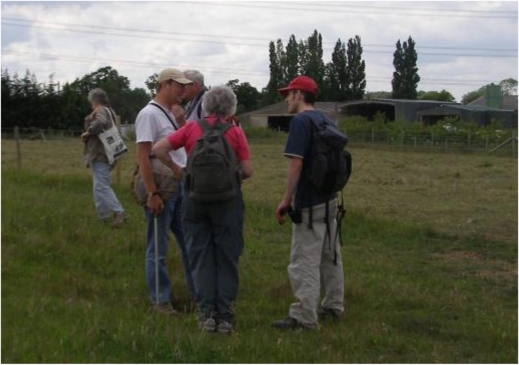 Everyone is welcome, and each trip is a chance to be guided round a site and learn more about the locality. This year we are visiting a variety of sites which should provide interest in all kinds of wildlife.
Everyone is welcome, and each trip is a chance to be guided round a site and learn more about the locality. This year we are visiting a variety of sites which should provide interest in all kinds of wildlife.
For more information on any of the field meetings contact Peter Lake on 01763-261554.
Dogs
Assistance dogs only on walks please, as many are in sensitive areas.
What to Bring
Depending on the outing, here is a check-list of things you may need:
Rubber/walking boots, plastic bag, welly socks, warm clothing, insect repellent, waterproofs, magnifying glass, basket, collecting boxes, net, notebook, pencil, mobile phone, maps, directions, GPS, compass, chemical tests, white handkerchief, tissues/toilet paper, field guide, camera, binoculars, spotting scope, spare batteries, cash, snack, drink, packed lunch (on day trips or if staying for a picnic).
If you need to bring a knife, it must not look like a weapon.
Hazards
As well as the usual hazards like sprains and falls, there are a few specific ones to mention:
Lyme Disease
This is a nasty disease carried by the ticks that live on deer and pheasants. Wear long trousers tucked into socks, and check your arms (under your watch/bracelet is a favourite haunt) for the tiny ticks, which should be removed within 24 hours. If you discover them later than this, you should see a doctor.
Hornets, Wasps and Bees
Avoid disturbing hornets at all costs! If you know you react badly to insect stings, make sure you bring your emergency medication.
Blackthorn spikes
These can quickly turn septic, and you may need antibiotics.
Details of Spring/Summer field trips for 2019 can be found by following this link.


